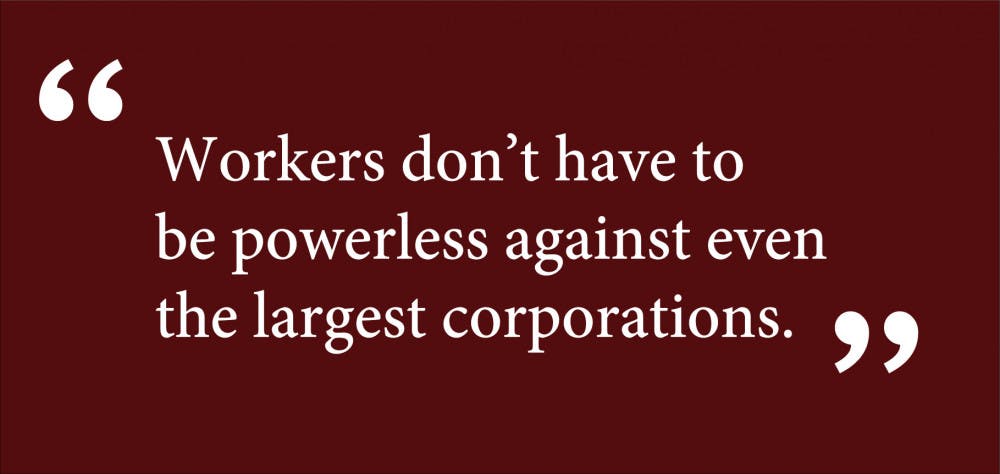Last week, Amazon announced a wage hike for all its employees — everyone, even temporary employees, would make at least $15 an hour. This is great news — more money in the pockets of workers isn’t something to dismiss. But we should be clear about one thing: It was the power of people, not the invisible hand or a sudden act of “Bezos benevolence” that made this happen. It's reasonable to expect wages to rise because the labor market in the United States is tightening. Unemployment is low, which means we ought to expect firms to offer better pay in order to attract workers. This is especially important for companies like Amazon that hire a large number of temporary workers during the holiday season.
But when Bezos announced the hike, he didn’t mention anything about competitive wages or labor market shifts. In a company blog post, Bezos wrote this: “We listened to our critics, thought hard about what we wanted to do, and decided we want to lead.” The blog post also promised that Amazon would push policymakers to raise the federal minimum wage. This decision comes after months of headlines skewering the online retailer for hellish working conditions and bad pay for warehouse employees. An Economist article from January reported that when new Amazon warehouses open, they underpay their workers. This also leads to the depression of wages for employees at non-Amazon warehouses in the same area. This summer, Amazon workers in Spain, Poland, Germany, Italy and France went on a strike to protest poor conditions. And the employees of Whole Foods, a new Amazon subsidiary, are currently moving to unionize.
Suppose we assume the wage hike was purely a response to a tight labor market. If this is the case, how are we to explain Amazon’s newfound position that the federal minimum wage is too low? I submit the following to you: Amazon was feeling the heat for their bad behavior and decided it was time to make different choices.
Real wages have been stagnant for decades and labor unions, one of the primary avenues through which workers have fought for better pay and better working conditions, have been slowly eroded over the last 50 years. Changes in hiring practices are making it much more difficult to collectivize. Rather than hiring, training and maintaining their own workforce, companies are increasingly relying on third party contractors and temporary workers to function. According to Alan Kreuger, a professor of economics at Princeton and researcher for the National Bureau of Economic Research, this erosion of collective bargaining goes a long way in explaining why wage growth has been empirically weak even when unemployment is low.
Amazon’s recent bow to pressure from workers, media and the public signals something important. If people are loud enough together, we can make a difference. My hope is that the Amazon wage hike is the beginning of something bigger — a renewed reminder that workers don’t have to be powerless against even the largest of corporations. Bezos, like the CEOs of many other corporations, has tried (and continues to try, as the case is with Whole Foods) to push back against unionization efforts. But when workers organize, workers win. Union employees make more money and have access to more benefits than their non-union counterparts. If we want the world to be a better place for working people, we can help make it that way by supporting unions and helping workers demand better from corporate giants.
Ruth Foster ’19 is the daughter of a union employee and thinks you should never cross a picket line. Please send responses to this opinion to letters@browndailyherald.com and op-eds to opinions@browndailyherald.com.





